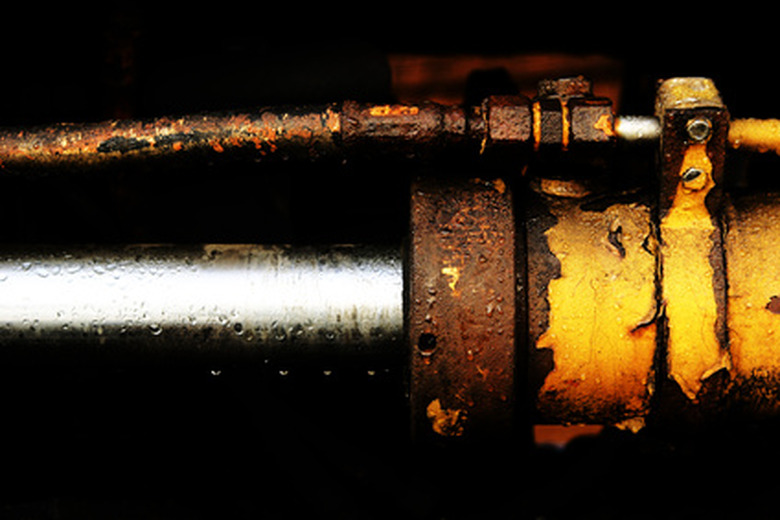How To Reduce The Noise Of A Condensate Pump
A condensate pump can be found in any device which requires the removal of moisture in the air into liquid (condensation). These machines may either remove this liquid once it is collected, as a dehumidifier does, or they may recycle the water into the function of the machine, such as cooling systems. Condensate pumps are often very loud due to high fluid velocity and hydraulic action. Depending on the size, location and noise level of the pump, steps taken to reduce noise may include altering the insulation between building floors, reducing flow velocity or providing rubber buffers.
Step 1
Add an extra layer of insulation between the pump and the walls of the room to block sound vibrations from spreading to other rooms. Place a thick foam padding under the pump, and line the walls with sound canceling panels or fiberglass insulation. If the pump is a small water pump about 1 foot by 1 foot in size, a mouse pad works very well for a floor insulation.
Step 2
Tighten any bolts on the pump and pipe system attached to the pump which may contribute to excess rattling. Cover pipes in foam if they are lightly bouncing off of nearby walls.
Step 3
Check that there are no holes in the pump and pipe system which are allowing air flow to cause pulsations in the pump action. Repair holes or replace necessary pipes to ensure that no excess air is getting into the system.
Step 4
Clean or replace your pump's filter. Debris removed from the water can require the pump to work harder to push the flow past the filter.
Step 5
Reduce the velocity of water flow in the pipe as long as it will not disrupt the effectiveness of the system. Refer to your pump's owner's manual or technical expert to determine the optimal flow rate for the pump you are operating.
Step 6
Add a reflection silencer to the pump system. This is a mechanism which will cancel out sound waves produced by the machine by producing an out-of-sync sound wave.
